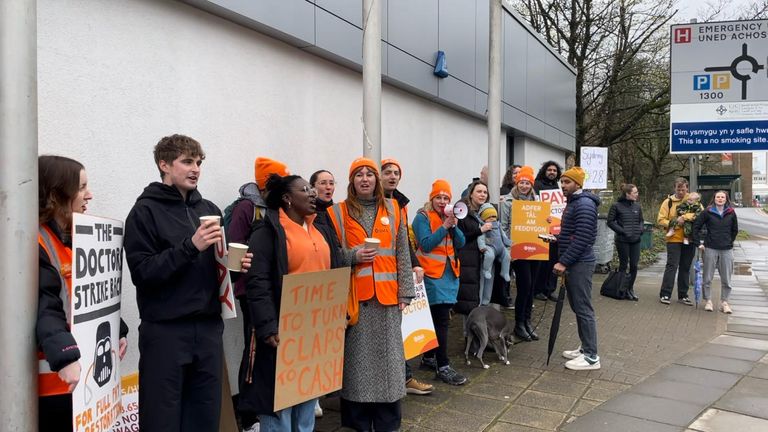The number of people waiting for routine hospital treatment in England has risen for the first time in seven months, new figures show.
An estimated 6.33 million patients were waiting for 7.57 million treatments to be carried out at the end of April, NHS England data shows.
This is up from 6.29 million patients and 7.54 million treatments at the end of March.
NHS waiting lists have become a key focus of the general election campaign.
Latest general election updates
Rishi Sunak vowed to tackle the high numbers in January 2023, when it stood at 7.21 million treatments.
On Wednesday night, Rishi Sunak claimed during Sky News’ Battle For Number 10 programme that NHS waiting lists are “coming down”.
But he admitted: “We’ve not made as much progress on cutting waiting lists as I would have liked.”
He was booed by the audience, which represented a mix of voters, after he said junior doctors strikes have had an impact on waiting lists.
The waiting list hit a record high in September 2023, with 6.5 million patients waiting for 7.77 million treatments.
Sir Keir Starmer vowed to bring down waiting lists by creating 40,000 new appointments per week, as one of the first things a Labour government would do.
Tim Gardner, assistant director of policy at thinktank The Health Foundation, said: “With both Labour and the Conservatives promising big improvements in NHS waiting times, today’s figures are a stark reminder of the scale of the challenge facing the next government.”
He added that while there has been “some progress” in recent months “there is still a huge mountain to climb”.
👉 Tap here to follow Politics at Jack at Sam’s wherever you get your podcasts 👈
Read more:
The MPs standing down
Key seats to watch
Lib Dem health spokeswoman Daisy Cooper called on Mr Sunak “to apologise to the public for his failure to get NHS waiting lists down instead of ducking responsibility”.
“The prime minister getting booed by the public over soaring waiting lists last night shows just how angry people are with his record of failure,” she added.
Shadow health secretary Wes Streeting said: “This has blown a hole in Rishi Sunak’s claim that the NHS has turned a corner.”
He said the PM “can’t blame NHS staff… the blame lies solely with the Conservatives”.


